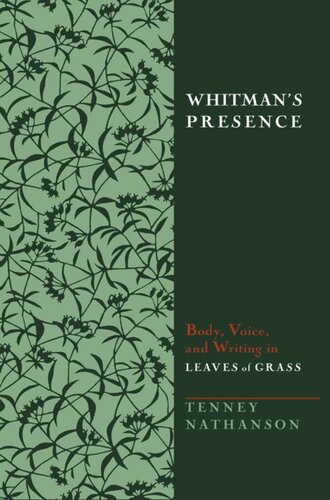

Most ebook files are in PDF format, so you can easily read them using various software such as Foxit Reader or directly on the Google Chrome browser.
Some ebook files are released by publishers in other formats such as .awz, .mobi, .epub, .fb2, etc. You may need to install specific software to read these formats on mobile/PC, such as Calibre.
Please read the tutorial at this link: https://ebookbell.com/faq
We offer FREE conversion to the popular formats you request; however, this may take some time. Therefore, right after payment, please email us, and we will try to provide the service as quickly as possible.
For some exceptional file formats or broken links (if any), please refrain from opening any disputes. Instead, email us first, and we will try to assist within a maximum of 6 hours.
EbookBell Team

0.0
0 reviews"Nathanson addresses with renewed insight a problem that has vexed Whitman scholars at least since James E. Miller, Jr.'s A Critical Guide to Leaves of Grass turned Whitman into a respectable academic subject; that is, the unusual status of Whitman's poetic voice. . . . The overall result is the finest articulation of Whitman's project in existence."
Donald Pease, Department of English, Dartmouth College
"What enables Nathanson to perform a feat no other critic has accomplished depends as much on his awareness of a range of thinkers from Wittgenstein to J.L. Austin and Derrida as on his sense of the qualities of poetry: he gives the term presence a cultural as well as poetic significance which opens out to cultural history, and makes Whitman as much a representative presence in the culture as our unequalled poet. I see this as a central book about our literature."
Quentin Anderson, J.C. Levi Professor in the Humanities Emeritus, Columbia University